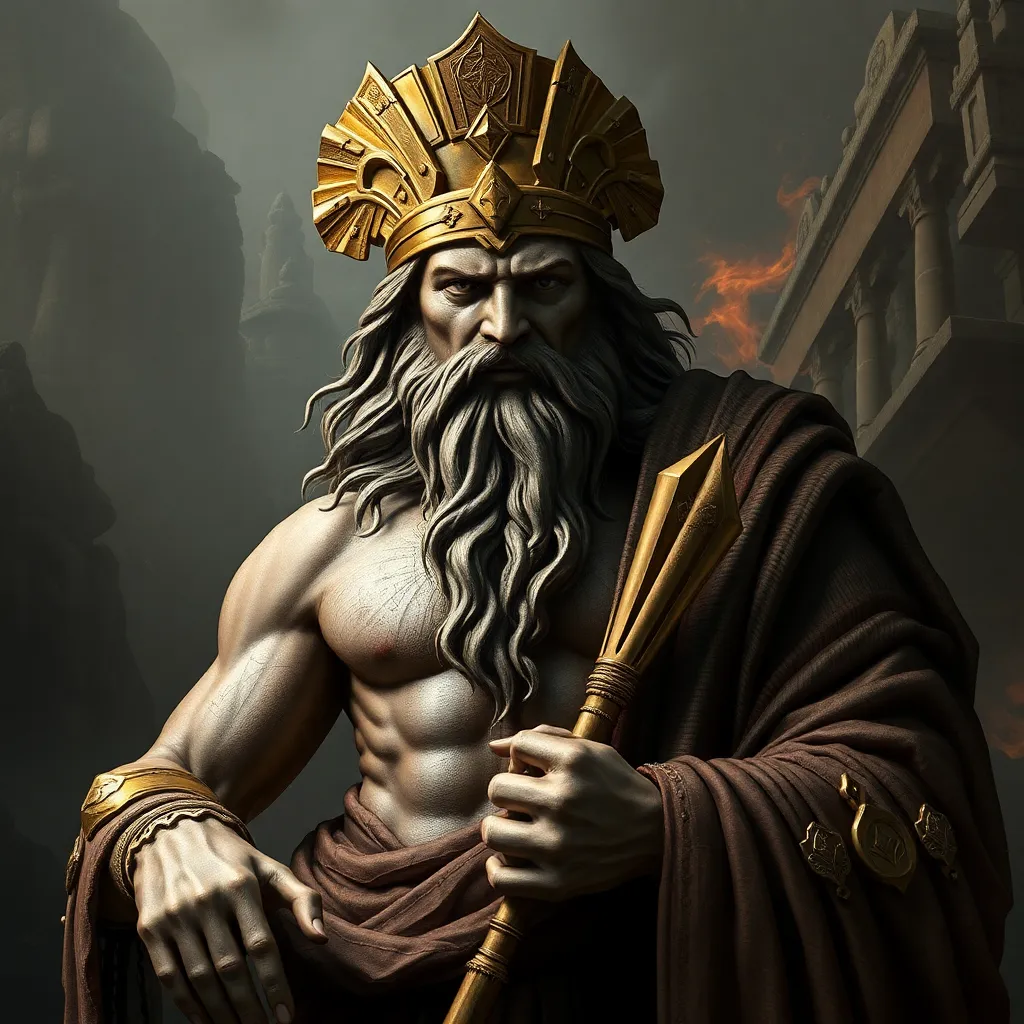The Myths of Ares: Exploring His Relationships with Mortals
I. Introduction
Ares, the Greek god of war, is often depicted as a fierce and tumultuous deity whose presence evokes both fear and admiration. His character embodies the chaotic and violent aspects of battle, contrasting with the more strategic and noble representations of war seen in other figures like Athena. Understanding Ares’ relationships with mortals provides insight into the complexities of love and conflict in ancient Greek culture.
This article aims to explore Ares’ interactions with humans, particularly focusing on his relationships with notable figures and themes that emerge from these narratives. By examining these myths, we can appreciate the multifaceted nature of Ares and the lessons they convey about war and love.
II. Ares in Greek Mythology: A Brief Overview
Ares was one of the Twelve Olympian gods, born to Zeus and Hera. He is often characterized by his physical prowess, depicted as a handsome young man in armor, wielding a spear and shield. His attributes include:
- God of war, violence, and bloodshed
- Symbol of chaos and destruction
- Often accompanied by his sons, Phobos (Fear) and Deimos (Terror)
In the pantheon of Greek gods, Ares held a unique position. Unlike other deities who were revered and worshipped, Ares was often feared and despised. He played a significant role in various myths, including:
- The Trojan War, where he sided with the Trojans
- His tumultuous relationship with Aphrodite
- Encounters with heroes like Heracles and Achilles
These stories reflect both his power and the duality of his nature as a god who embodies both glory and devastation.
III. Ares and Aphrodite: The Union of War and Love
One of the most famous myths involving Ares is his affair with Aphrodite, the goddess of love and beauty. Their relationship is often seen as a juxtaposition of two opposing forces: war and love.
The myth narrates how Ares and Aphrodite fell in love, despite Aphrodite being married to Hephaestus, the god of craftsmanship. Their affair resulted in several children, including Harmonia, Phobos, and Deimos. The story symbolizes:
- The complexity of love intertwined with conflict
- The idea that passion can be both beautiful and destructive
- The contrast between Ares’ violent nature and Aphrodite’s nurturing aspect
This relationship affected mortal perceptions of love and war, showcasing how both can coexist yet lead to chaos and heartache.
IV. Ares and Heroes: The Influence on Mortal Warriors
Ares’ interactions with legendary heroes highlight his dual role as a god of both strength and destruction. He was often invoked by warriors seeking courage in battle. Notable heroes such as Achilles and Heracles had complex relationships with Ares.
For instance:
- Achilles, while a fierce warrior, often wrestled with his own emotions, reflecting the internal conflict that Ares embodies.
- Heracles, known for his strength and heroic deeds, had encounters with Ares that showcased the god’s overwhelming force and the potential for doom.
These relationships illustrate how mortals both revered and feared Ares, recognizing him as a source of strength while also acknowledging the peril he represented in times of conflict.
V. Ares and Mortal Women: The Stories of Seduction and Devastation
Ares’ interactions with mortal women often resulted in seduction and devastation. Notable myths include his relationships with Harmonia and Cybele, each revealing themes of power dynamics and vulnerability.
For example:
- Harmonia, the daughter of Ares and Aphrodite, represents the blending of love and war, ultimately facing challenges in her marriage to Cadmus.
- Cybele, a goddess associated with nature, was also linked to Ares, showcasing how his influence extended beyond mere mortals.
The consequences of Ares’ seductions often led to chaos in the lives of these women, emphasizing the destructive nature of unchecked desire and the vulnerabilities faced by those entwined with the god of war.
VI. The Cultural Perception of Ares: From Villain to Antihero
The portrayal of Ares in ancient texts and art has varied significantly over time. In early Greek literature, he is often depicted as a villainous figure, embodying the horrors of war:
- Homer’s “Iliad” presents Ares as a chaotic force, often disliked by other gods.
- In later works, Ares takes on a more nuanced role, sometimes viewed as an antihero, embodying the complexity of human emotions.
Over time, perceptions of Ares shifted, with some interpretations highlighting his necessary role in the balance of life, contrasting with the more benevolent gods. This evolution reflects broader societal attitudes toward war and conflict.
VII. Lessons from Ares’ Relationships: The Complexity of Love and War
The stories of Ares impart moral and ethical lessons about the interplay between love and war. They prompt reflections on:
- The consequences of personal desires on society
- The intricate relationship between passion and conflict in human experience
- Moral ambiguity in the pursuit of love and glory
These narratives remain relevant today, as they explore themes of conflict, desire, and the duality of human nature, offering insights into contemporary understandings of relationships and warfare.
VIII. Conclusion
Ares’ relationships with mortals reveal profound truths about the nature of love, conflict, and the human condition. His mythological narratives serve as cautionary tales about the complexities of desire and the consequences of war.
As we reflect on these enduring myths, we recognize Ares’ legacy in modern culture, where the themes of love and war continue to resonate. The stories of Ares invite us to contemplate our own relationships and the impact of our choices, ensuring that the lessons of the past remain relevant in our lives.




